












Welcome to Issue 13, our 3rd anniversary issue!
Yes, 3 years ago we launched the very first issue of Pitch Black Magazine during Black History Month.
The mission was simple, to celebrate us, cheer us on & challenge us to tune out the noise and turn up with poise.
The aim is still the same.
So, in this issue we shine a spotlight on one of the UK's most successful, socially conscious and sincere business leaders and hope you will be enlightened by the tales and get some tools & tips that will equip you so your business and career can thrive.
You’ll love Rob Pierre’s journey from Trinidad to the top of Digital Marketing! You can #read the cover story and then #watch the video of our conversation. Rob sure dropped some gems!

Matthew Addai & the Cashblack team are back spotlighting 10 Products to Buy from their platform. They are joined by chef and founder Arron Maddix spotlighting 10 Plates to Savour and Christina Belloge from Melanin Travels Magic, spotlighting 10 Places to Visit in Africa & The Caribbean.
They’re joined by some great contributors to expand our thinking including Tomi Ayodeji, from FORTéFIED, Remi Dada from the School of African Languages, Tinique Hay from Hay Events and, of course, Nicola Millington from FP Comms.
If that wasn’t enough, we’ve also got Elaine Bowes from Pentecostal Community Bank and the one and only Eric Collins from Impact X Capital. In fact, we’re cooking up something which we think you’ll like. :)
We hope you’re having an impactful Black History Month and that the impact will continue way after October.
Enjoy the new issue!
Colin & Judy
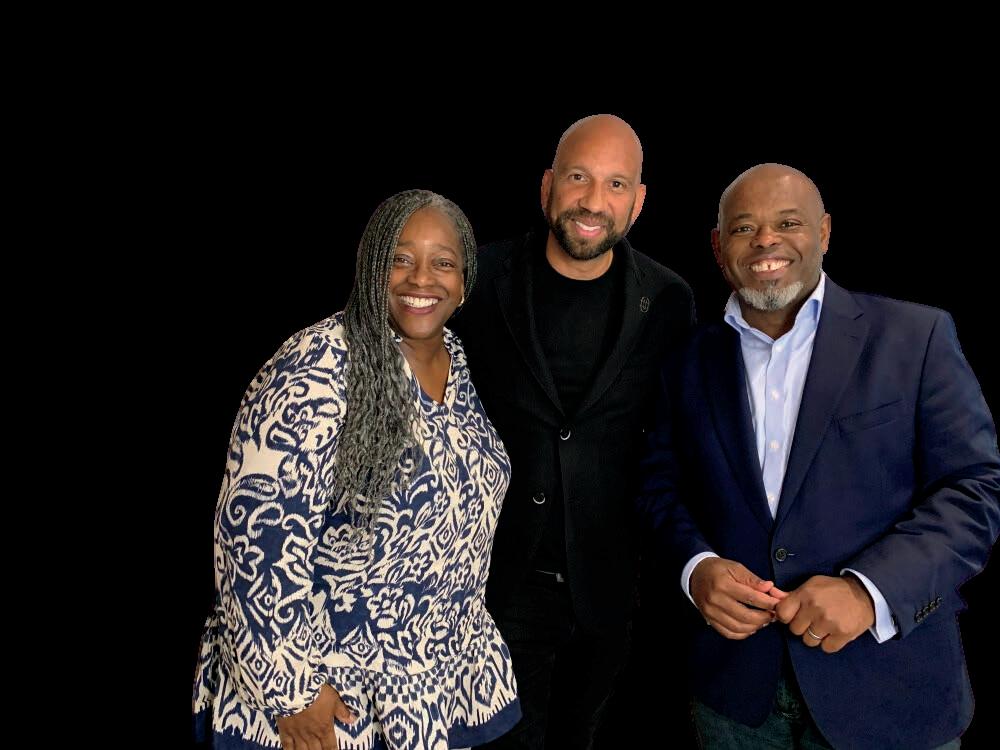

Tomi is a multi-generational workforce coach with over 15 years of experience across the finance, non-profit, and IT. She partners with senior leaders and middle managers to help retain emerging talent and create inclusive environments where all generations thrive.
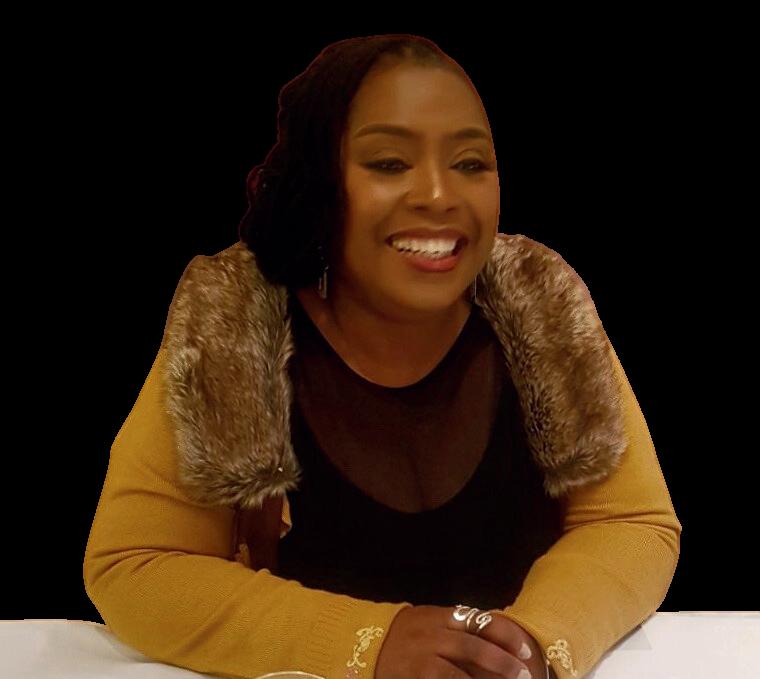
Elaine has been the Head of Marketing & Communications for the Pentecostal Credit Bank (formerly Pentecostal Credit Union) for over 13 years and has been instrumental in designing and communicating its values, vision and value to our Black & Faith communities.

Eric is an Investor, Serial Entrepreneur & Host of Channel 4's The Money Maker. He currently serves as the CEO & Founding Member at Impact X Capital, investing in underrepresented entrepreneurs and his latest book We Don’t Need Permission is all about How Black Business Can Change Our World.

Remi Dada is the founder of the School of African Languages, the African languages school which delivers online and face to face classes. She created the school to preserve African languages and introduce non-Africans to the beauty of African cultures.

With 9+ years in the Event Management industry, she’s seen thousands of entrepreneurs & SME’s need well-planned events to get in front of their customers, but did not have what it took. So she beame an event planner to help them bring their event visions to life.

Nicola is a PR professional with over 20 years PR experience. She is also the founder of the award-winning FP Comms - a boutique public relations agency that works with ambitious and socially aware businesses, and entrepreneurs.
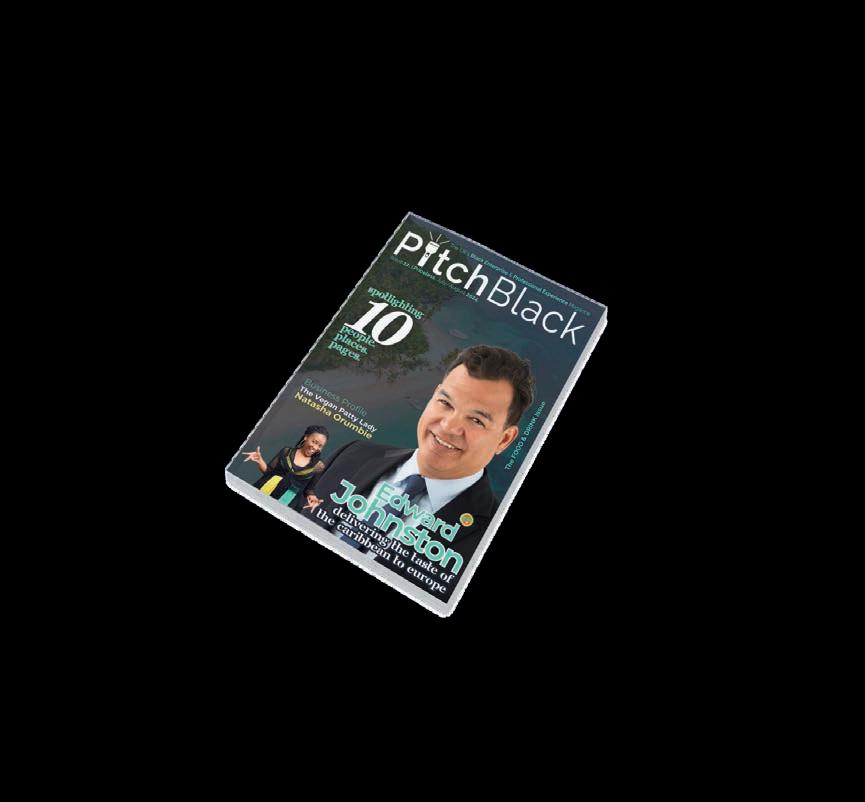

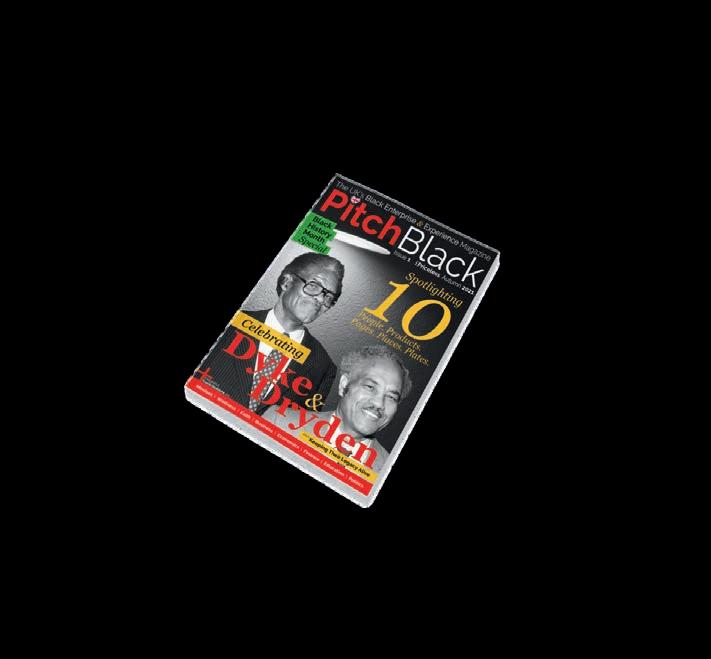




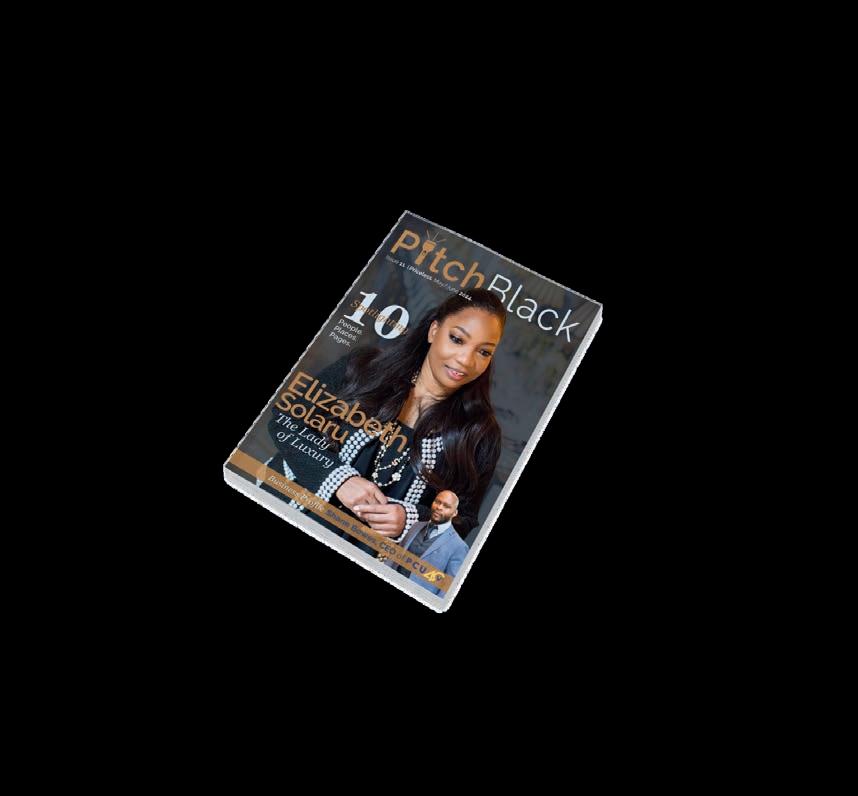
Publisher & Editor in Chief Colin Tomlin colin@pitchblack.online
Growth Resource Director
partnerships@pitchblack.online
design@experiencegrowth.online
advertising@pitchblack.online

Terms & Conditions All materials are strictly copyrighted and all rights are reserved. No part of this online publication may be reproduced in whole or part without the expressed permission of experience growth Online Ltd.
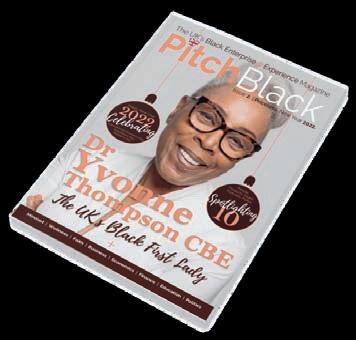

Although every effort has been made to ensure the accuracy of the information contained in this publication, the publisher cannot be held responsible for any loss or damage of any material, solicited or unsolicited. The views expressed in this publication may are not those of the publisher or those of the advertiser. No cash alternative will be offered for Competitions and the publishers decision is final.

Rob Pierre quietly and deliberately changed the face of digital marketing by building Jellyfish into one of the most successful ‘digital partners’ of companies like Google, Netflix & Samsung. At the time of his exit, it had a team of over 2,000 people in almost 40 countries and had an annual revenue of circa £200 million with a market valuation in excess of £500 million.
When Leighanne Pinnock, Golda Rosheuvel and Teyonah Parris want to get their hair done for film, TV or a magazine shoot, Dionne Smith is the one they call.






10 People to Follow
We spotlight 10 People to follow who are making an impact.
10 Products to Buy
We spotlight lifestyle products to buy from the Cashblack platform.
10 Pages to Read
We spotlight 10 books to keep your growth experience on track.
10 Plates to Savour
We spotlight 10 eateries for you to savour and a few of their dishes.
10 Places to Visit
We spotlight 10 places in Africa & The Caribbean you must visit.








Belonging by Remi Dada
Remi outlines how we can reclaim our identity one African Language at a time.
Workplace by Tomi Ayodeji Tomi talks about the 5 generations currently in the workplace and why it matters.
PR by Nicola Millington
Nicola shares 3 practical ways to ( re )claim your narrative for your business & career.
Events by Tinique Hay
Here are 5 Reasons to turn your business event into a buying platform.
Banking by Elaine Bowes
The Pentecostal Community Bank has a plan to transform our financial wellbeing.
Economics by Eric Collins
Eric lays out a path to economic equity by us shopping like Venture Capitalist.






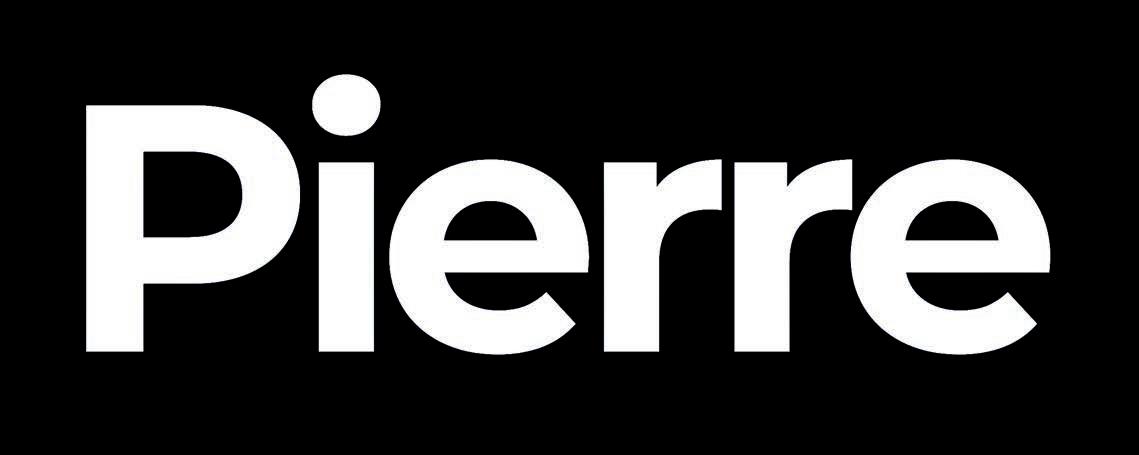


Interviewed & written by Colin & Judy Tomlin



steeped in the entrepreneurial spirit that surrounded him. He watched as his neighbours turned challenges into opportunities, nurturing his innate inclination toward innovation

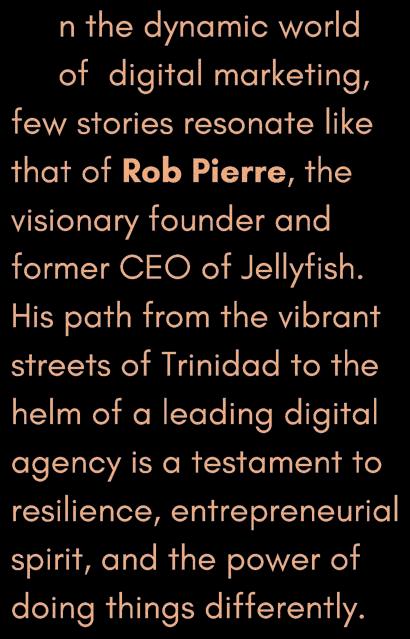
Iupbringing instilled in him a deep would shape his future endeavours.
Life, though, took an unexpected turn when a trip to the beach ended with the tragic death of his brother. After the trauma that event caused in the family, Rob returned to the UK,
situation and cultural landscape. The transition was anything but smooth.
Faced with the pressures of academic expectations and cultural adaptation, setbacks. Yet, rather than allowing these challenges to deter him, he







he harnessed his determination, turning adversity into a catalyst for growth.
Rob’s ambition led him to pursue a Computer Studies degree, sponsored by IBM. After successfully navigating a rigorous assessment process, he faced a devastating blow; failing his Physics A-level. The disappointment was profound, but it became a pivotal moment in his life.
“I never once looked at somebody's qualifications and exam results,” Rob reflects. “We found different ways to assess whether you were the right person for the work.”
This realization became one of the cultural foundations for Jellyfish— valuing skills and potential over traditional academic qualifications.
In a fortuitous twist of fate, Rob embarked on a career path that took him from the bustling retail floor of Gatwick Airport to the regional helm of a global eyewear giant. What began as a temporary solution to bridge a gap in his academic pursuits turned into a seven-year journey marked by unexpected growth and professional fulfilment.

“I found myself thrown into the deep end of retail,” Rob recalls. “But the challenges were exhilarating. The autonomy, the responsibility—it was like running my own mini-business.”
From managing stock and hiring staff to devising innovative sales strategies, he discovered a hidden talent for sales and leadership. The ability to motivate teams, drive performance, and think outside the box quickly caught the attention of his bosses, especially once he had transformed a seemingly ordinary Sunglass Hut store at Gatwick Airport into the top-performing outlet worldwide of over 2,200 stores.
How did he do it? By carefully observing customer behaviour, empowering employees, and fostering a competitive yet collaborative environment.
“It wasn't just about selling sunglasses,” Rob explained. “It was about creating a memorable experience for our customers and a fulfilling workplace for our team.”
As he ascended the corporate ladder, his leadership skills continued to evolve by honing an ability to analyse data, make strategic decisions, and inspire others to reach new heights.
The result was a journey from Retail Associate to Regional Sales and Operations Manager and a testament to the power of seizing opportunities, embracing challenges, and cultivating a passion for excellence.
This success led an invitation from the US based president of Sunglass Hut
We found different ways to assess whether you were the right person for the work.
to invite Rob to come on board as the MD of Europe for their music retailer concern. However, it was not to be due to a lack of autonomy created by an ambiguous leadership structure which led to Rob’s departure.
A stint working with a marketing company at the forefront of brand licensing and recurring encounters with IT entrepreneur, Paul Walsh from Avondale IT led to a partnership that became the genesis of Jellyfish.

By focusing on outcomes rather than just completing tasks, you create a more impactful organization


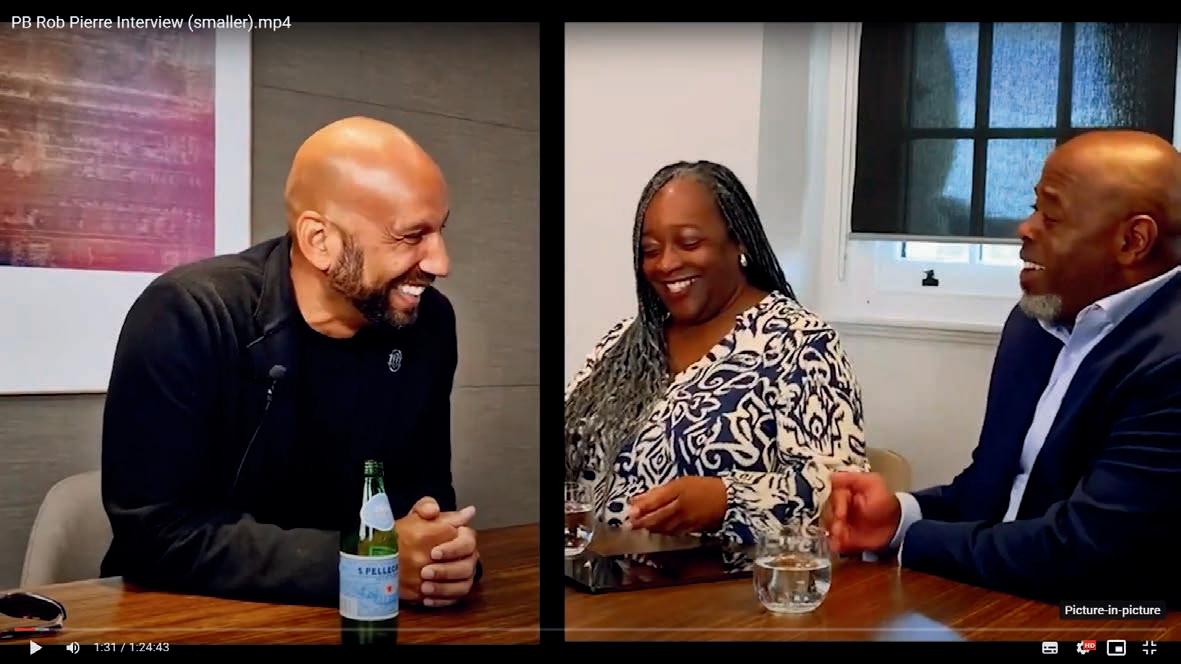








As Rob continues to steer a path toward new horizons after Jellyfish, he remains committed to challenging the status quo using his concept of ‘social offsetting’.
As co-owner of the Inside Out Project, he plays a crucial role in the UK’s first clothing brand designed and created by young ex-offenders. This initiative not only provides valuable job training but also helps to break down stigmas surrounding rehabilitation, illustrating the power of business to drive social change.
Additionally, as a founding member of Impact X, a venture capital company, Rob is dedicated to supporting underrepresented entrepreneurs across Europe. His vision is to create a more inclusive entrepreneurial landscape, ensuring that diverse voices have the resources and opportunities to thrive.
Rob’s entrepreneurial spirit doesn’t stop there. He is also the co-founder of Infinity, a technology company, and serves as an advisor and investor at ufurnish.com, a platform revolutionizing the way consumers shop for furniture.








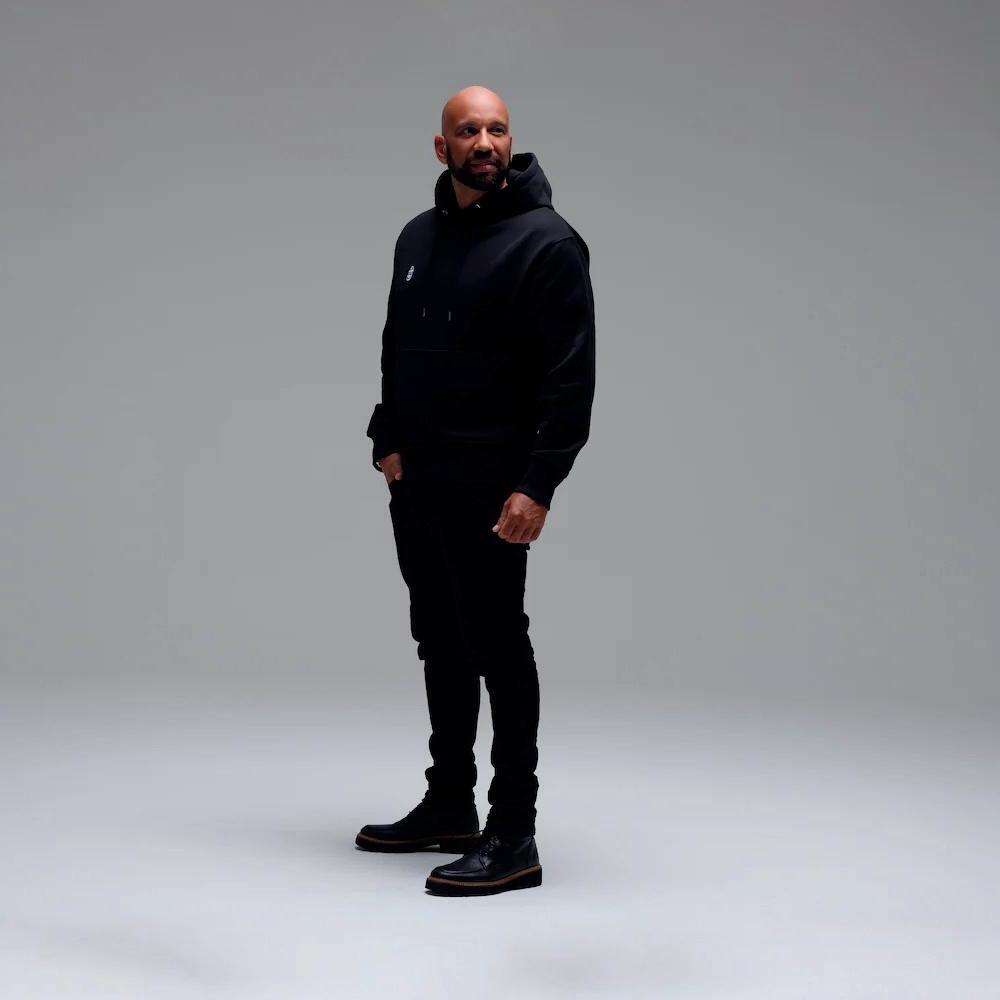
As the owner of Mber, a fine bar and restaurant in the heart of London, Rob continues to blend his business acumen with his love for community engagement.
An influential voice in the business world, Rob frequently contributes to international speaker circuits, industry podcasts, and national media. His insights on the future of
I'm working on a concept of social offsetting, because our privilege is at the expense of others
work and the importance of diversity resonate widely, making him a soughtafter commentator. Notably, he appeared on Channel 4's ‘The Money Maker’ alongside host Eric Collins, showcasing his expertise and innovative thinking.
Rob’s impact has not gone unnoticed. In 2021, he was awarded Media Leader of the Year at Campaign’s Media Week Awards and was featured in the Powerlist 2022, 2023, and 2024, highlighting the UK’s 100 most powerful Black Britons. His inclusion in KPMG’s Black Leaders Network in 2024 further cements his status as a leader in advocating for diversity and inclusion in business.
As Rob Pierre continues to champion sustainable growth and social impact, his journey serves as a powerful reminder that innovation and responsibility can go hand in hand. Through his work, he not only inspires ambitious businesses but also paves the way for a more equitable future—one where every voice has the opportunity to contribute and thrive.
We reckon Rob is just getting started!






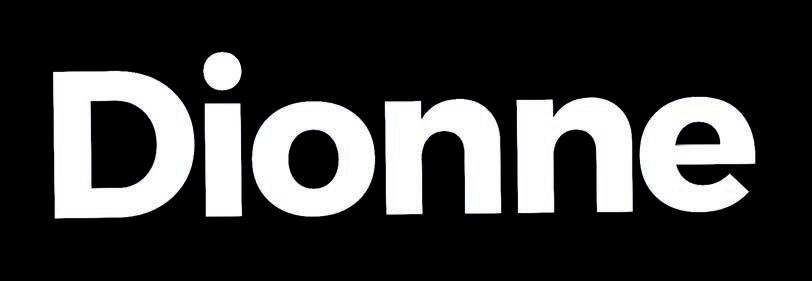


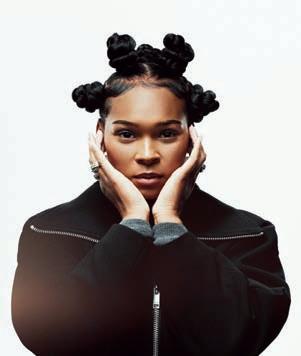


Work featured in 1
2
I started doing hair from a very young age, my weekly chore was to Shampoo and braid my two younger sisters hair for school and from that I started doing their friends then the mothers and my clientele continued to grow to the point where I was making my own money and could look after myself, which helped with my parents not having to give me pocket money.
I eventually grew out of my home and opened up my first salon which ran for years and then I decided to go freelance as I realised I enjoyed this side of hairdressing a lot more. I enjoy meeting all the new people, working in different locations which includes travelling globally too.
I haven’t looked back since but I did enjoy my salon days, it taught me a lot about business and time management as well as organisational skills.




How did you identify this need?
When I first started out specially as I started doing more session styling I was encouraged to work across all hair types, which I am capable of doing. But as I grow in the industry I realised that I wanted to focus more on textured hair and be really good at it and execute it to a very high level, which at the time I felt was a little lacking in this space.
I wanted to be known as a textured hair expert and to provide a service that was professional and memorable.
I feel into this label of Natural Hair Specialist because I executed it so well and that came from a bride who many years ago came to me to style her natural hair for her wedding day after being told by several other stylists at the time that Natural hair won’t work for a bridal look.
I told her that’s not true and I styled her natural hair for her wedding to the point were she was so happy she cried. That’s what started my mission to create amazing hair using natural textures to show that it was possible.
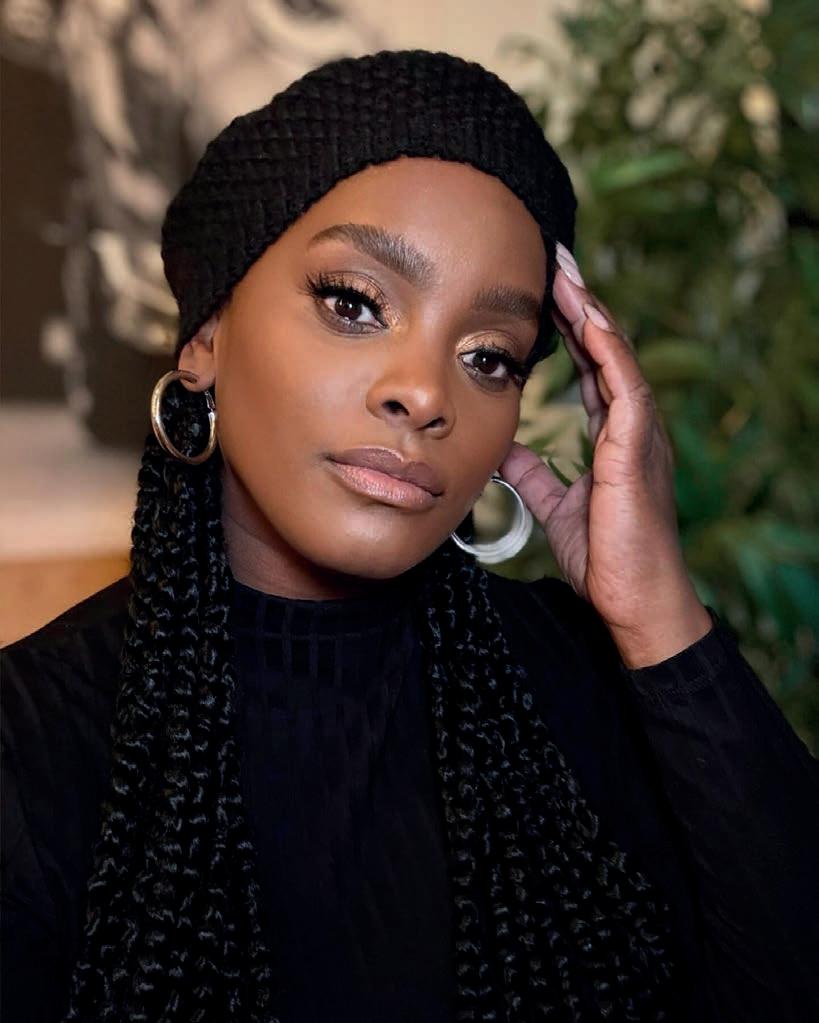
I feel into this label of Natural Hair Specialist because I executed it so well

I was quite lucky as I had a few good people around me that saw my potential and made suggestions like “dionne you should enter the hair awards” or “dionne I’d love to introduce you to my agency” so with those things I looked into and started to learn so much more about the hair industry and that it’s not just salon based.
So I ventured into awards with I won once and made finals twice and that gained recognition amongst my peers.
I joined an agency as an assistant in the fashion space which introduced me to the session side of things and from that I found my way and what I wanted to do and the direction to go in.
What are some of the challenges you faced early on and how did you overcame it?
I believe my hardest challenge was finding my way and how could grow and expand as a hairstylist, as people were not readily willing to share information. It used to really hurt me as I felt that many were quite selfish, but roll on 15 years and I kind of get it.
And…. I did lots of FREE work to build my portfolio which enabled me to be able to post some amazing work.
I also set up lots of collaborative shoots where everyone wanted the same thing images/content of their work.
Then Social Media (Instagram) became a thing and that was it! It’s free! You get access to people you probably wouldn’t on a normal day and that was really good for me.
What is your unique selling proposition (USP)?
I would say definitely natural hair & sculptured hair, I am very much known for the creative hairstyles I create and how I work with textured hair in all its forms. I do love the beautiful Coils & Curls and love to enhance that.
Who are some of the individuals you've worked with?
Across my career which spans 20+ years I have worked with so many amazing people, but more recently 4 5 6
some of my clients include Golda Rosheuvel, Leigh-Anne Pinnock, Sarah Niles, Teyonah Parris & Wunmi Mosaku to name a few…
Looking ahead, what are your biggest goals for the next 3, 5 & 10 years?
One thing with a creatives is that we are always full of so many ideas and I have already along the way tried so many things, which I have taken lots of life lessons from, so looking ahead now I would love to achieve the following.
Up to year 3 Launching 2 books & having or being a part of a TV Show

Up to year 5 Launching my Autobiography and the possibility of a Hair Care Line
Up to year 10 Venturing into a fashion brand also possibly an academy for textured hair training and some kind of charity to give back.
One thing with a creatives is that we are always full of so many ideas
Success to me is setting out my achievements and being able to tick them of but not constantly moving the goalpost but being happy and content in just knowing you grown or developed that little bit further.
Across my career which spans 20+ years I have worked with so many amazing people











Julian founded Yendy Skin to be a mission-led personal care brand with a supply chain built to support small-scale female farmers in sub-Saharan Africa.
Since launching their bestselling Antioxidant Power Serum in 2021, they’ve been featured in Stylist Magazine, Harpers Bazaar, Good Housekeeping, GQ, Independent, Evening Standard, Telegraph & more.
Their second product: The Super Shea Moisturiser, was named by British Vogue as one of the “Best Beauty Products of the Year” in 2022/23.
In 2021, he was announced as one of the Board Trustees of The Africa Centre.

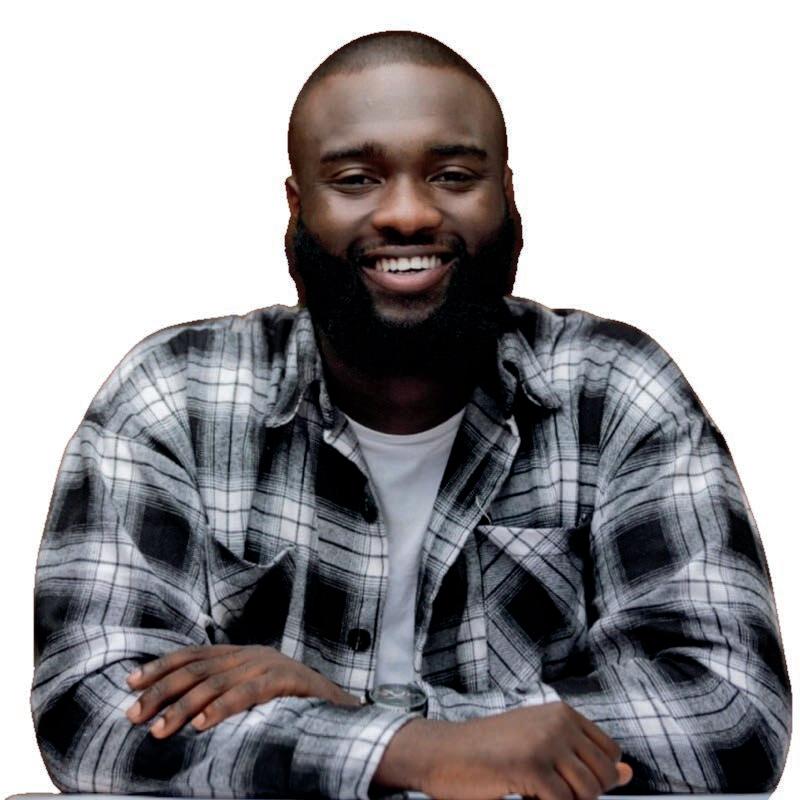
With extensive experience in the beauty space as an event producer with some of the biggest brands, Donna launched The Beauty Beat event in October 2022, the UK's only luxury beauty event designed for, and centred around, the beauty needs of Women of Colour.
Through partnerships with elite beauty and social media brands, this groundbreaking event features premium offerings from the best Creators of Colour as well as inspiring and innovative demonstrations and panel discussions with the leading industry experts and specialists.

So much is the anticipation of the 2024 event in November that 2000 tickets sold out with a waiting list of over 1000 people!

Flavilla Fongang Founder & CEO , Black Rise & Founder, Black Women In Tech

Flavilla is an author, multi-award-winning serial entrepreneur, an international and multilingual keynote speaker in both English & French. Computer Weekly placed her top of a list of the most influential woman in tech in the UK among a list of more than 600 women in tech nationwide.
With over 18 years of experience in B2B branding and marketing, she is the founder of Black Rise, a dynamic social business platform that bridges the gap between businesses and the immense potential of Black talent.
She is also a UN Brand Partner partner to support women’s rights and advancements across the world.
Patricia Hamzahee FRSA
Co-Founder & Partnerships Director, Extend Ventures
Co-Founder & Trustee, Black Funding Network
With over 20 years in investment banking and financial communications, Patricia is passionate about helping social enterprises attract private capital and also advises private capital providers on responsible investment strategies. As cofounder of Extend Ventures, she also works to increase access to funding for diverse startups, small businesses and Blackled social change organisations.

As co-founder of the Black Funding Network, she works to offer small, Black-led grassroots organisations serving our communities access to valuable funding from people of any background who want to give collectively and intentionally.



Karl Lokko Founder & Managing Partner, Black Seed
Karl founded Black Seed, a community led by Black founders, for Black founders all about building the tech ecosystem Black founders deserve.
A former gang leader turned activist, poet, influencer, public speaker and adventurer, Karl has harnessed his life experiences which has propelled and uniquely situated him for the work he does.
Combined with his ability to connect with people, this makes Karl one of the most potent voices in the country, allowing him to bridge the gap between worlds and unite communities.

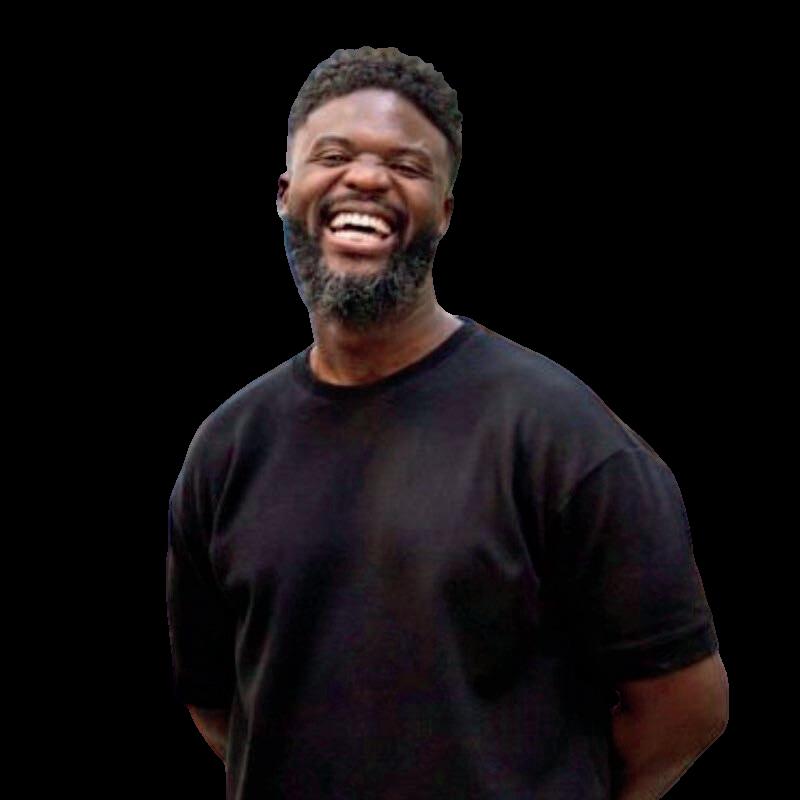

Pamela Maynard Chief AI Transformation Officer, Microsoft Customer & Partner Solutions
Prior to her new role with Microsoft, Pamela has most recently been the CEO of Avanade, a joint venture between Microsoft and Accenture which is the leading digital innovator on the Microsoft ecosystem, where she led a global team of over 60,000 people.
A seasoned technology professional and business leader, initially leading Avanade UK, she went on to lead the European operation and subsequently the global operation.
She also serves on the Board of the Royal Horticultural Society and as the Vice Chair of the Board of Governors for Junior Achievers Worldwide.
She was recently named Black British Business Person of the Year at the recent Black British Business Awards 2024.

With over 15 years of experience in delivering high-quality and impactful journalism across multiple platforms as a TV News Correspondent and a Radio Host & Presenter at the BBC, Greg has a passion for uncovering the truth, exposing corruption, and giving voice to the voiceless, with a focus on social justice, diversity, and inclusion.
In line with that passion, he founded the UK's first ever clothing brand designed and created by ex young offenders, the Inside Out Clothing Project, to provide them with a second chance and a positive outlet.


Sebastian is an experienced director, writer, and producer, who has directed and produced shows for some of the biggest platforms like BBC, Netflix, Amazon Prime, ITV, Showtime.
In his late teens he founded his production company Upshot Entertainment to self-produce content, which has since amassed over 13 million views on his YouTube channel for titles including Trap Town and the Just A Couple web series. Under Upshot Entertainment Seb operates as an independent director, writer and producer, and also has a number of film and TV projects in development.
His credits include Netflix smash series Supacell (Netflix), the Emmy and BAFTA nominated Dreaming Whilst Black (BBC) and hit drama Riches (ITV, Prime).



Alex is a proven international media/tech executive with 20+ years’ experience building successful global businesses and brands.
His defining career moment came in 2003 when he authored the business plan for ViacomCBS’ first channel business in Africa, MTV Base, which he led and scaled into a 10-channel, pan-African multiplex with 100+ million viewers.
Alex is now responsible for Google’s operations in Africa including programs to help businesses and economies on the continent to grow, as well as expanding access and providing tools to help the next billion users get more from the web.



Timi is the CEO of the Black Equity Organisation (BEO), an organisation committed to dismantling systemic racism and improving the socio-economic conditions of Black communities across the UK.
Timi brings a wealth of experience from her roles in global consulting firms and her extensive public service, having served as a magistrate for 11 years.
She is deeply involved in her local community, serving as the Chair of her local church’s organization.
Previously serving as the Director of Partnerships & Programmes, BEO collaborates with major corporations to create a more inclusive business environment.









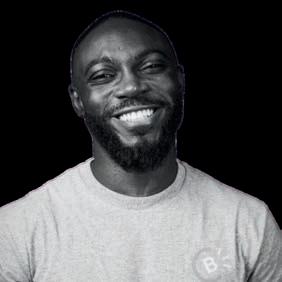

Matthew Addai,




In this edition, we're delighted to return with another 10 products on Cashblack, our groundbreaking platform that rewards you for supporting Black-owned brands.
As we continue to honour the diversity and innovation of these entrepreneurs, Cashblack shines as a symbol of empowerment, offering cashback incentives that make shopping with Blackowned businesses even more gratifying.
In this issue, we spotlight Blackowned brands on Cashblack that are making waves in the lifestyle industry.
From beautiful homeware to elegant loungewear, each brand brings something unique to elevate your everyday life.


Cashblack enthusiastically endorses these businesses, not just for their exceptional products, but also for the inspiring founders behind them and their unwavering dedication to greatness.

The Home Lounge Co founded by lifestyle influencer Chanel Boateng, focuses on offering stylish and comfortable women’s bodysuits and dresses. Their collection features versatile, high-quality pieces designed to enhance both everyday wear and special occasions, with a commitment to delivering modern, flattering styles for women of all shapes and sises.
Cashblack Recommends: Black Hug Me Waist Firming Long Sleeve Maxi Dress (£45) - Embrace style and comfort with this waist-firming maxi dress, perfect for any occasion.
2.
Isura offers a stunning collection of jewellery inspired by the rich cultures of Africa and the Caribbean. Founded by Temi Ogunyemi, the brand aims to celebrate heritage and adorn roots with their beautifully crafted pieces.
Cashblack Recommends: Africa motherland pendant (From £20) - A perfect blend of elegance and cultural pride.

3.
Earth to Roots is a holistic wellbeing store dedicated to enhancing your lifestyle with handcrafted natural hair and body products. Founded by Anna-Nina Koduah, the brand is committed to sustainability, offering organic and vegan products.
Cashblack Recommends: Uplifting Reed Diffuser (£20) - Experience this soothing aroma crafted with natural, ecofriendly ingredients to create a tranquil home environment.
4.



Club Seven Menswear, founded by Alex Gede, elevates men’s underwear by merging style, comfort, & sustainability. Using ecofriendly fabrics & thoughtful design, including their signature 3D pouch, the brand provides practical, confidence-boosting essentials that fit seamlessly into a modern lifestyle.

Cashblack Recommends: Bamboo Bulge Trunks Bundle (£40.00) – Stylish, moisture-wicking, and designed for all-day comfort.





5.
Myla’s Seamoss specialises in organic, wildcrafted sea moss products. Founded by Rahmel Orlebae with a mission to provide natural health solutions, the brand offers a range of nutrient-rich sea moss gels and other wellness products to promote a healthy lifestyle.
Cashblack Recommends: Seamoss Gel (From £15) - Boost your health and vitality with this powerful, golden St Lucian superfood.

6.
Damihow is all about living active and feeling empowered. Founded by Dami Howells, the brand combines style with function to support every workout and wellness journey. Their activewear isn’t just about looking good—it’s designed to keep up with your goals, offering comfort, durability, and confidence.
Damihow’s commitment to quality is reflected in every piece.
Cashblack Recommends: Sculpt Pink Crop Sip Up Jacket (£36) – A must have crop sip-up jacket perfect for your outdoor or gym workout.


7.
Afrotouch Design, founded by Georgina Fihosy, blends contemporary style with African heritage in a stunning array of stationery, greeting cards & homeware. Each item celebrates African culture with bold, eye-catching designs that bring a touch of elegance to your daily routine. Their handcrafted items are perfect for an Afrocentric lifestyle.
Cashblack Recommends:

Afrotouch Design – Daily Planner (£10) - Take your planning and self care to the next level with AfroTouch Design’s Daily Planner to help you organise your day, reaffirm your affirmations and remind yourself for what you are grateful.
8.
Naso at Home brings luxury and culture together in every detail. Founded by Yasmine Mohammed, the brand offers premium home decor pieces that infuse African artistry and heritage into modern living spaces. Each item is crafted with care, blending tradition with contemporary design to elevate your home experience. Naso at Home’s dedication to quality and cultural authenticity shines through their unique collections.
Cashblack Recommends: Citronella Candle (Essential Oil) (£23) - This Citronella scented candle offers a subtle, floral, lemon-like aroma with woody undertones. Its medium-strong scent adds a refreshing touch to your home.





9.
IUVO Skincare offers luxury, handmade skincare products that are 100% natural and vegan. Founded by the late Edith Gabbidon, the proud family business focuses on providing high-quality, eco-friendly skincare solutions to promote an organic and healthy lifestyle.
Cashblack Recommends: Shea Rosehip Oil Face and Body Butter - (£22) – Their Organic shea butter and Rosehip Oil is rich and creamy with no added preservatives coming unscented or scented with Gardenia essential oil.
10.


Mama’s Hands, founded by Marcelline Meniyé, was inspired by a mother’s journey to nurture her daughter’s natural hair. The brand focuses on holistic, plant-based hair care products that promote healthy growth and celebrate the beauty of textured hair. Embracing a lifestyle of self-care and confidence, Mama's Hands empowers individuals to feel their best through intentional hair care.
Cashblack Recommends: Restorative hair oil (£33) – A revitalising treatment for hair loss and scalp conditions, designed to restore your hair's natural strength and vitality..
Cashblack Recommends: Sculpt Pink Crop Sip Up Jacket (£36) – A must have crop sip-up jacket perfect for your outdoor or gym workout.










Tina Andrews
In an atmosphere of abolition and revolution, Queen Charlotte Sophia, Britain's most famous (possibly) mixed-race Princess comes alive in this reimagined story of her life where romance, adventure and politics collide.
From a German backwater to the capital city of the most prolific Empire in the world, we journey with Queen Charlotte as she tries to discover the truth of her family's secret heritage, guided by an amulet and wooden chest left to her upon her father's death. Armed with a birthmark and bearing a complexion that reveals her silenced lineage, Queen Charlotte charges through the royal court of London, seeking answers, making allies and guarding secrets.
With the weight of the amulet around her neck, Queen Charlotte learns what happens when love and legacy are at odds.
2.


by Esuantsiwa Jane Goldsmith
Illuminating her inner journey growing up mixed-race in Britain, Esua Jane Goldsmith's unique memoir exposes the isolation and ambiguities that often come with being 'an only'.
Raised in 1950s South London and Norfolk with a white, working-class family, Esua's education in racial politics was immediate and personal. From Britain and Scandinavia to Italy and Tanzania, she tackled inequality wherever she saw it, establishing an inspiring legacy in the Women's lib and Black Power movements. Plagued by questions of her heritage and the inability to locate all pieces of herself, she embarks on a journey to Ghana to find the father who may have the answers.
A tale of love, comradeship, and identity crises, Esua's rise to the first Black woman president of Leicester University Students' Union and Queen Mother of her village, is inspiring, honest, and full of heart.


by Rafael Sofoluke
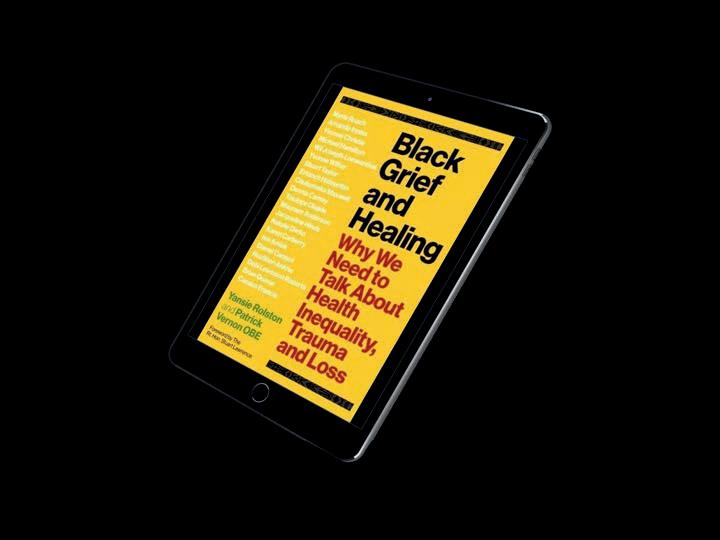

4.
by Yansie Rolston & Pathrick
Vernon OBE

In Together We Thrive, Raphael Sofoluke, Founder and CEO behind UK Black Business Show and UK Black Business Week, reveals the immense potential of harnessing a community.
You’ll learn how to nurture the connections that will become your currency and build relationships that will fuel your success. Your network speaks louder than you can, amplifies your story, mission and values, and is more resilient than you could ever be on your own.
Packed with insights and inspiration from Sofoluke and his own community of highly successful people, Together We Thrive will help you find a tribe of invaluable supporters who will hold you to account and make sure that you reach your full potential.
If you want to go far, you have to go together.
The stories and poems in this anthology illuminate the unique ways loss affects the Black community, and the effects of the widespread lack of understanding of traditional rituals and beliefs. They show us how experiences of collective loss during the pandemic, the aftermath of the Grenfell Tower fire and ongoing systemic health inequalities are experienced not just as individuals but also as part of a global community. Contributors from a range of backgrounds, professions, and identities discuss the challenges of grieving under the shadow of continuing adversity, including threats of deportation. Sources of strength and healing are also explored, from personal and spiritual responses to community initiatives and activism.
Poignant and inspiring, these are stories we all need to read, and provide us with insights into lives and losses which are all too often misunderstood and sidelined.

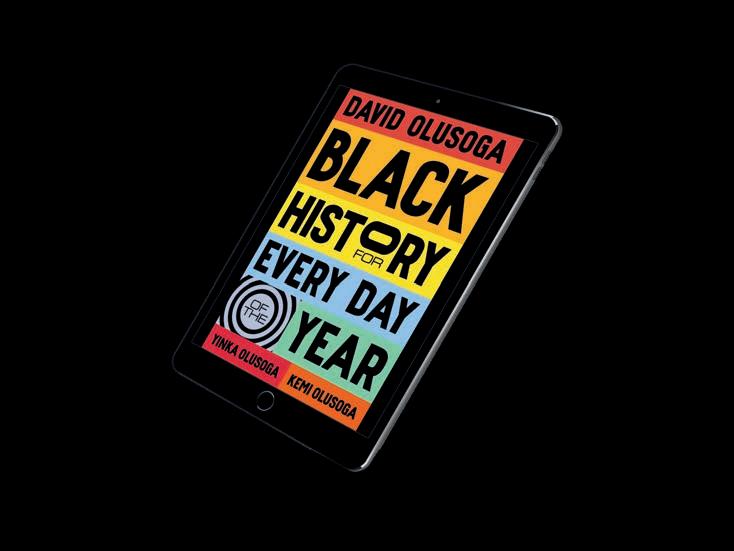


by David Olusoga, Yinka Olusuga & Kemi Olusoga
This book tells the far-reaching story of Black history and helps you discover something new every day.
Did you know that Aretha Franklin was the first woman to be inducted into the Rock and Roll Hall of Fame? And that a Black woman discovered the cure for leprosy? Or did you know that the first accounts of a Black Samurai in Japan date back almost 500 years ago?
Packed with quotes, poems, illustrations and pictures, Black History for Every Day of the Year gives you new insights about well known figures and inspirational unsung heroes. With stories of hope, connection and creativity, alongside tales of racism, resistance and celebration - from the nineteenth century anti-slavery movement, to World Wars I and II, to the Harlem Renaissance, Stormzy, Simone Biles and beyond.

by Asher & Martin Hoyles
West Indians have been coming to Britain for over 300 years, so the arrival of around 500 Caribbean passengers on the Empire Windrush in 1948 was not new. This book records twenty-eight early West Indian immigrants, such as Norman Manley, Learie Constantine, Una Marson and C.L.R. James, but also less well-known figures like the model Fanny Eaton, nurse Annie Brewster, footballer Andrew Watson and airman Billy Strachan. Their stories are interspersed with Asher’s passionate poems.
“People of West Indian descent are often reduced to one single word: Windrush. This crushes their individuality and is historically inaccurate. Asher and Martin Hoyles truthfully and poetically tell the stories of those who came to Britain much earlier. Embedding the Windrush Scandal in a much deeper history of debt that we owe to those who came to Britain, the authors don’t weaken the case for justice for Windrush citizens, they fortify it.” David Lammy, UK Foreign Secretary.


by Tasha Bailey

8.


In recent years, therapy and self-care have become familiar buzzwords, but it's clear that people are having to face their emotional difficulties without the tools and insight to work through them. Enter Real Talk: A book to enable readers to have genuine, authentic conversations with themselves, and to start the journey of healing their past experiences and cope with the challenges of modern life.
Filled with techniques and wisdom from a therapist's toolkit this is a must-have handbook for optimising your mental health. Drawing on her experience as a qualified psychotherapist and applying her intersectional perspective Tasha Bailey shares the knowledge and skills you need to change your life.
Tasha's straight-talking but compassionate style will help readers hold up a mirror to their present situation & make sense of their past.
For the last three decades Gary Younge has had a ringside seat during the biggest events and with the most significant personalities to impact the black diaspora: accompanying Nelson Mandela on his first election campaign, joining revellers on the southside of Chicago during Obama's victory, entering New Orleans days after hurricane Katrina or interviewing Archbishop Desmond Tutu, Maya Angelou and Stormzy.
He has witnessed how much change is possible and the power of systems to thwart those aspirations.
Dispatches from the Diaspora is an unrivalled body of work from a unique perspective that takes you to the frontlines and compels you to engage and to 'imagine a world in which you might thrive, for which there is no evidence. And then fight for it.'


by Darcus Beese


by Cynt Marshall

This is the story of how a teenage apprentice hairdresser from Fulham worked his way up from teaboy to head one of the UK's biggest and most successful record labels, Island Records, signing and nurturing some of the greatest artists of the twentyfirst century - from Amy Winehouse and Jessie J to U2 and Florence and the Machine.
But this is also the story of a young man raised in musically fertile and politically febrile times. His activist parents Darcus Howe and Barbara Beese were tireless campaigners for racial equality at a time when racism was rife, not only on the streets, in schools and on the terraces, but also in the highest institutions of power. Fighting for equality - for himself and for his artists - has therefore been a key part of Darcus's life.
This is the incredible tale of an indomitable leader, an industry pioneer and rebel with a true cause.
Cynt Marshall has spent her entire life beating personal and professional odds while also helping everyone she meets see how they are uniquely equipped to thrive. Through it all, this self-described "people person" never stopped reaching out and built a reputation as an inspiring motivator and mentor in business and beyond.
Marshall grew up in a northern California housing project with a violent father who once broke her nose, but also with a strong, devoted mother who kept her family fed and focused, reminding them, "It's not where you live, but how you live."
Heeding her mother's advice, Marshall excelled first at school and then in her professional life, overcoming overt and subtle racism to become, at 40, one of the first Black woman officers at AT&T, while also navigating both grief and joy as she started a family of her own and being diagnosed with stage 3 colon cancer at 51. Overnight, her life changed, but her commitment to serve others did not.
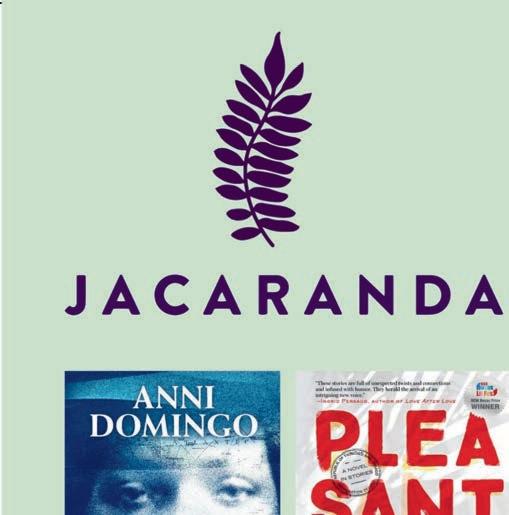









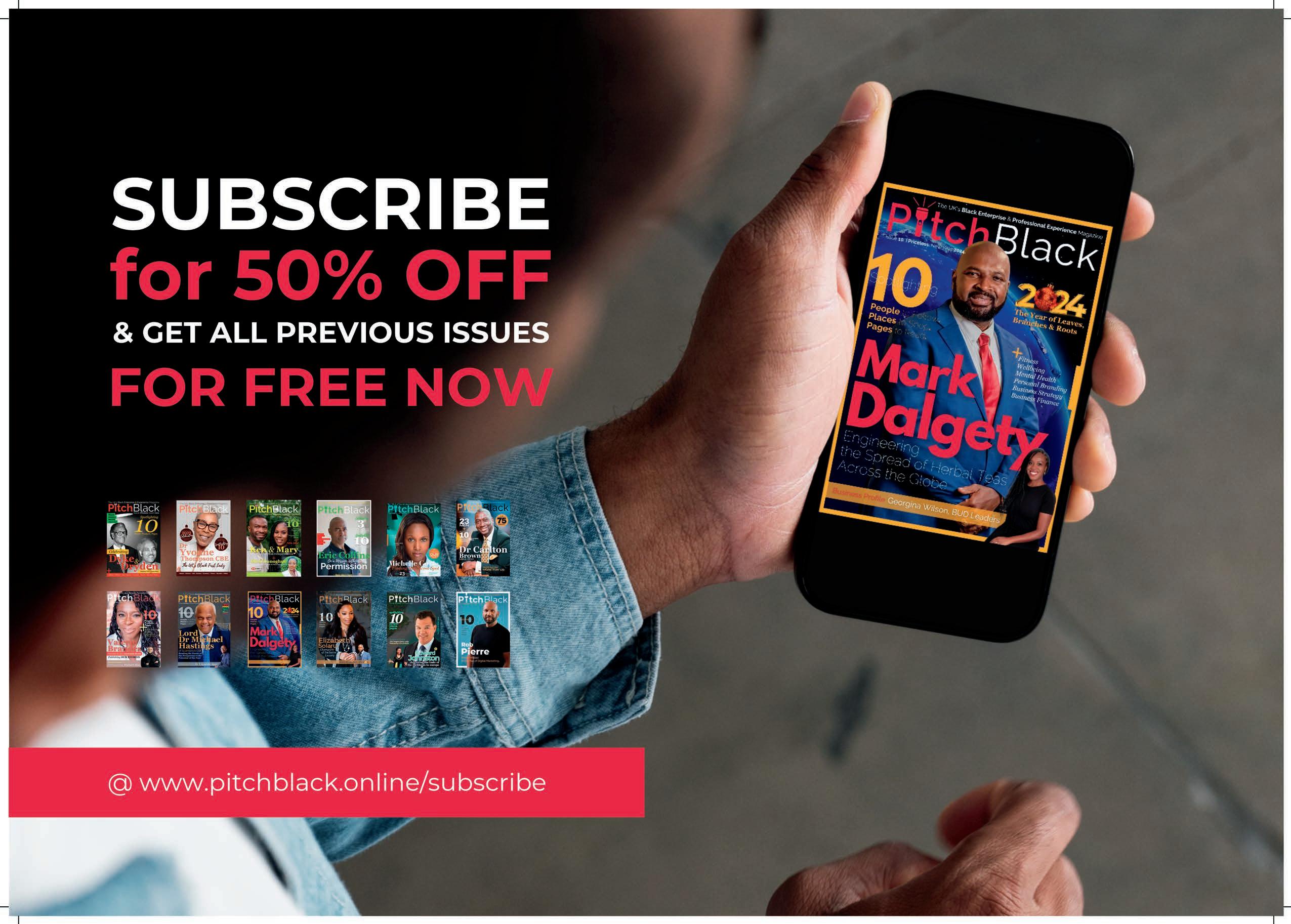






in partnership with






Hey, I’m Arron, and I’m a professional chef who’s taken food seriously my whole life, having been raised by a mother who was also a chef with a critical palate and a sharp eye for detail when it comes to food.

These chefs have blown me away with their innovation. They have set the pace for where food from our community in the UK is now, and where it can and will continue to go. They are inspiring others who work tirelessly to refine and redefine the dining landscape, utilising knowledge passed down by mums, aunties, and grandmothers, along with the lessons they've learned along the way to educate the world with their plates.
In this issue, I have the privilege of introducing you to 10 amazing Black-owned and run establishments that are cooking up incredible dishes throughout London. Each experience is unique, offering a distillation of flavours born from each chef’s personal journey—from their mind to your fork.
Don’t worry if you live outside of London, we will be catering for you soon. :)

Meet two inseparable sisters, Jo and Jess Edun, who are bringing the sweet taste of Nigeria to the UK food scene. Inspired by their grandma's joyful cooking, they are keeping her legacy alive through their restaurant and popup residencies.
Using their Peckham-based restaurant as a platform, these siblings strive to make a positive impact through food and the social connections it creates. They believe great food should speak to your soul and warm your heart. Visit them for Supermalt wings, smoky jollof, pounded yam, rum punch, and good vibes, all enhanced by an Afrobeats soundtrack. Diners rave that it’s the best Nigerian food outside of the homeland.
Visit @ Peckham Palms, 14 Bournemouth Cl, London, SE15 4PB


2.
In November 2023, Aji Akokomi, owner of Michelin-starred Akoko in Fitzrovia, opened Akara in Borough Yards. The restaurant, named after the black-eyed bean fritter, champions traditional West African flavours.


Featuring the lunch dish of guinea fowl Yassa, a supreme guinea fowl served with Yassa sauce (caramelised onions, lemons, mustard), pak choi, and pink pickled onions, Chishuru is a culinary gem.

The concise menu features dishes like Suya Spiced Short Rib, Lagos Chicken with a fiery Senegalese hot sauce, and BBQ Cabbage atop Ghanaian green sauce, Abunu-abunu.
The drinks menu is just as eclectic, offering options like a Scotch Bonnet Cordial.
Visit @ Arch 208, 18 Stoney St, London, SE1 9AD
Joké's desire to work in food traces back to her university days in Nigeria, where she studied biological sciences and ran a fish & chip cart. After moving to the UK 20 years ago, she worked in various fields before venturing into food, starting with a van outside her church in southeast London. Joké then ran a few supper clubs and eventually won a competition to host a three-month restaurant pop-up in Brixton Village. In February 2024, Chishuru was awarded a Michelin star, making Joké the first Black female Michelin-starred chef in the UK. She was also named 'Chef of the Year' at the National Restaurant Awards 2024.
Visit @ 3 Great Titchfield Street, London, W1W 8AX

4.



Operating six days a week, Rack City Ribs delivers a Jamaican-American fusion menu that includes smoked pork and beef short ribs, finished in an applewood smoker and topped with homemade bourbon glaze.
The menu also boasts burgers, cornbread, hash brown fries, and vegetarian options.
Visit @ The Duke’s of Highgate, 16 Highgate High St, London N6 & The Golden Lion, 88 Royal College St, Camden Town, London NW1 0TH

5.
Little Baobab London's favourite Senegalese restaurant brings people together through food and culture with the spirit of Teranga.
Recently opened at the Africa Centre, Little Baobab offers a seasonal dinner menu showcasing authentic Senegalese flavours like Thiebou Dienne, Yassa, and Mafe.
They also serve lunch and host regular live music events.
Visit @ Unit 504, Peckham Levels, 95A Rye Ln, London, SE15 4ST

6.

7.

Nathaniel Morley, aka Natty Can Cook, serves refined Caribbean cuisine at The Greyhound pub in Peckham. After overcoming personal hardships, he now aims to provide opportunities for ex-convicts through the power of hospitality, partnering with The Clink Project at HMP Brixton.
His menu blends Jamaican family recipes with French techniques, featuring dishes like jerk chicken supreme with brown butter mash and plantain cake with white chocolate ganache.
Visit @ 109 Peckham High St, London, SE15 5SE
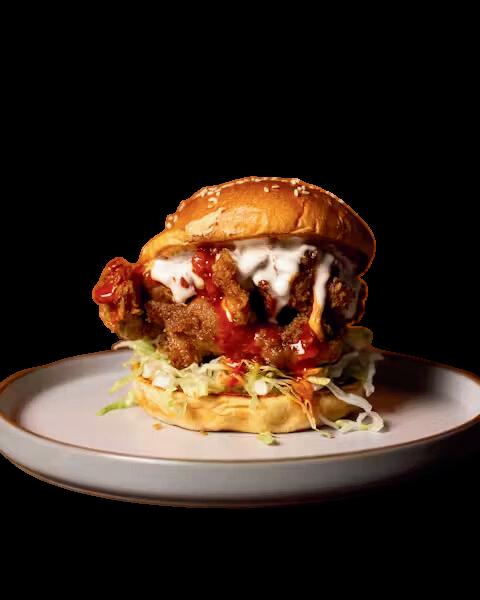
Founded in February 2023, Chicken Bandits serves up "Fried Chicken with South London Attitude."
The street food company caters events all over the UK, from music festivals to weddings, and even hosted a summer residency outside the National Theatre.
Buttermilk fried chicken burgers, wings, loaded fries and special sides eg deep fried mac N cheese balls.
They do all type of events from music festivals to private birthday parties at your home.
Visit @ Mobile



8.
9. Akoko
The first of the two fine dining West African restaurants by Aji Akokomi, and the second one in our list, Akoko blends tradition and creativity.
Led by Ayo Adeyemi, who secured the restaurant's first Michelin star less than 18 months into his tenure, Akoko continues to push the boundaries of West African cuisine.
Visit @ 21 Berners St, London, W1T 3LP



Light of Africa offers vegetarian and vegan Ethiopian and Eritrean dishes in Brixton Village.
Expect traditional injera, along with local Ethiopian beer on tap.
"At Light of Africa, we eat with our hands," says owner Elizabeth.
Visit @ Granville Arcade, Unit 55, Brixton Village, London, SW9 8PS




Flake Bake
Though not a restaurant, Flake Bake is revolutionising the FMCG (fast moving consumer goods) space with its Jamaican patties.
After several successful runs as special buys, with the most recent one selling an incrredible 100,000 patties in 10 days, Flake Bake's Jamaican beef patties are now a permanent fixture on Aldi UK shelves, available nationwide.
Visit @ Online @ www.flakebake.co.uk or in the chilled pies section at your local Aldi.

Follow Arron’s food founder journey...






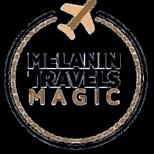








Are you part of the African Caribbean diaspora and need to reconnect?
Well, here’s why you need to add Africa & Caribbean destinations to your bucketlist in 2025?
At the height of the #blacktravellersmovement, in September 2020 and the need for the African and Caribbean diaspora to uncover our history and culture and for you to love and enjoy the wonders of our black nations.
We travel to inspire and empower the Black Diaspora, to primarily explore Black nations and reconnect with their home cultures, while helping to grow their economies through local tourism and Black-owned businesses.
We love celebrating the diverse and vibrant cultures of Africa, the Caribbean and Central America. Forget about Africa being all about safaris and pyramids.
After visiting over 46 countries including 10 in Africa, I’m here to inspire you.
First up, Cape Town's tidal pools.

Try Me!
Imagine you're lounging in a natural infinity pool, waves crashing nearby, with Table Mountain as your backdrop.
Sounds like heaven, right?
2.
Next, jet over to Diani Beach, Kenya.
This slice of paradise is a pure wellness wonderland. With its powder-soft white sand and crystal-clear waters, it's perfect for beachfront yoga or meditation.
3.




Last but not least, Santa Antão, Cape
This rugged island is a hiker's paradise, with jaw-dropping landscapes that'll have you pinching yourself.



It's time to hop over to the Caribbean. Trust me, these spots are about to give "relaxation" a whole new meaning.


4.
First stop,
This mineral spring is hotter than a Jamaican summer and packed with more minerals than a multivitamin. Legend has it that these waters have healing powers.
5.
Next up,
Tucked away in a thick jungle and surrounded by banana plantations, getting here is half the adventure. But, oh boy, is it worth it!



Okay, I know what you're thinking. "Snow? In Africa? Have you lost your marbles?"
But hear me out, because these next spots are about to flip your idea of Africa on its head.
6.
Let’s jet off to Afriski
In Lesotho, The Alps of Africa, this tiny kingdom is a winter wonderland that'll have you doing a double-take.
Strap on your skis or snowboard and hit the slopes.
7.
And if you're really looking to push your limits, there's Mount Kilimanjaro, Tanzania.
This behemoth isn't just a mountain –it's a life-changing experience waiting to happen.



Try Me!


Try Me!
Alright, beach bums, it's time to get your flippers ready. These African beaches are about to give the Caribbean a run for its money!

isn't just fun to say – it's a slice of heaven on Earth. With its powdery white sand and water so blue it looks Photoshopped, Zanzibar's beaches are the stuff of dreams.
And let’s not forget Nosy Be, Madagascar.
With its secluded coves, turquoise waters, and laid-back vibe, it's the perfect place to disconnect from the world and reconnect with yourself.



Last but not least, let's turn up the heat with a Caribbean adventure that's sure to get your adrenaline pumping.
Strap on your hiking boots, because we're about to climb an active volcano!
isn't for the faint of heart, but boy, is it worth it. As you trek through lush rainforest and misty mountains, you'll feel like you're on another planet.
Pack your bags, book that ticket, and get ready for adventures that'll transform you forever. After all, life's too short for ordinary vacations, right? Whether you're seeking inner peace on a pristine beach, pushing your limits these 10 destinations in the Caribbean and Africa promise experiences that will stay forever. Your transformation awaits! 10.
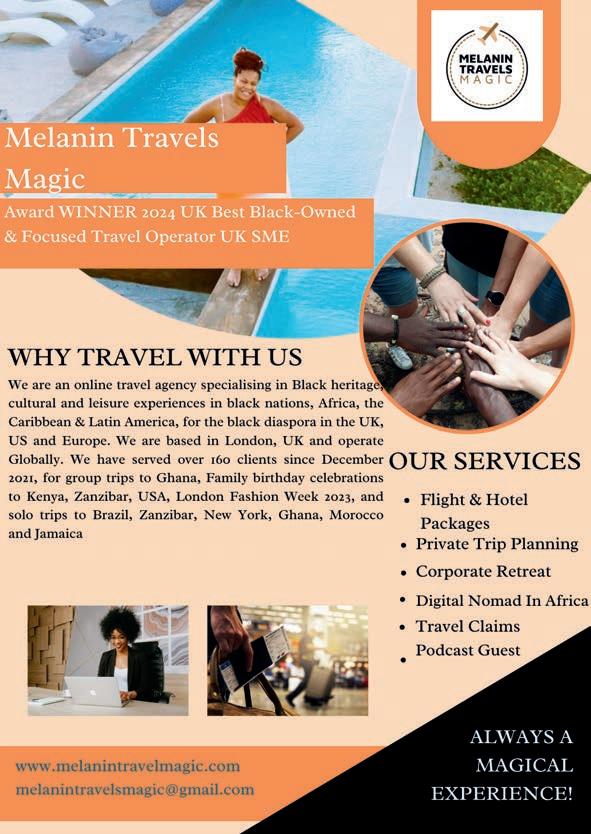


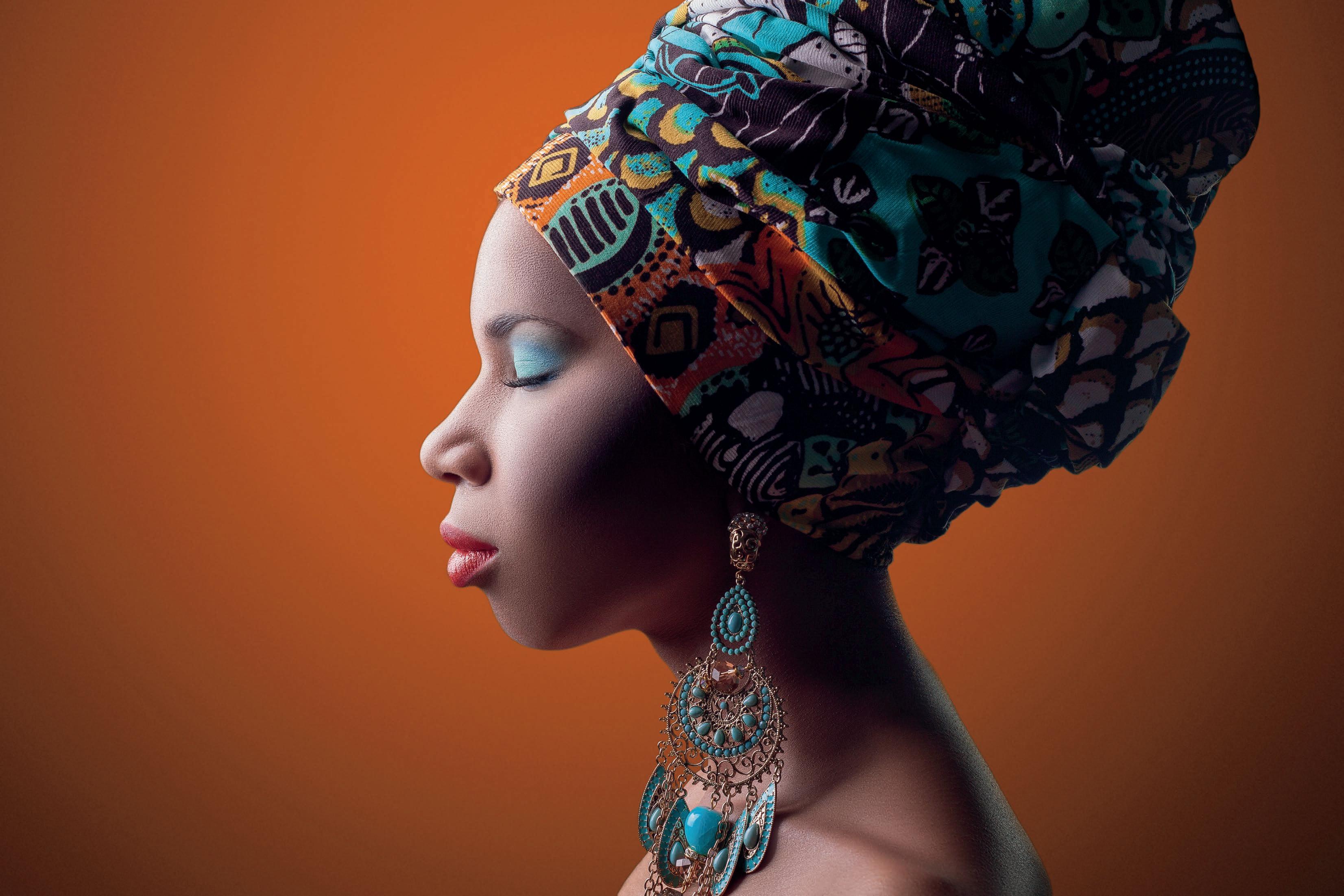


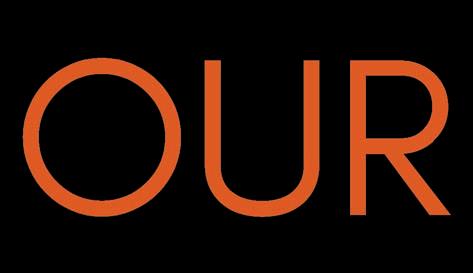





African languages are dying at an alarming rate, many spoken by smaller communities are struggling to maintain their ancestral language.
The disappearance of these languages not only removes cultural identities but it minimises the rich diversity of languages on the continent.

Over time, I felt a growing sense of loss, unable to embrace the languages that shaped my home.
As an African language school in the diaspora, it plays a vital role in preserving endangered languages, offering a revival of a cultural and linguistic kind that counters the loss faced by these languages both in Africa and globally.
Concern has been expressed over the future of endangered languages across Africa. Professor Mark de Vos, a linguistics professor at Rhodes University, South Africa, has warned that without wider support, native communities are losing their languages at a rapid rate and are at a great risk of being lost for good. An effort is needed to preserve languages and it is predicted that half of languages spoken today will lost by the end of the 21st century (UNESCO, 2010).
As a child born in the diaspora to Nigerian and South African parents, I grew up in a home filled with the rich and full sounds of my parents native languages. Myself and my 3 three elder siblings were never taught the language and often felt disconnected when unable to fully engage in the conversations that packed the room, especially when extended family visited. Over time, I felt a growing sense of loss, unable to embrace the languages that shaped my home.
For my parents, the English language served as a mask, in England’s hostile environment for African immigrants in the 1980’s. They encouraged us to master English, knowing that blending in at school could protect us from ridicule. Standing out invited verbal teasing, and while we tried to harden ourselves with the old mantra “sticks and stones may break our bones, but words will never hurt us,” we knew that words have power.
While English served as a protective shield for my parents in a challenging environment, it also highlighted the struggle of navigating the complex cultural situations for those in the diaspora. It has proven difficult for many to preserve our culture and embrace our linguistic heritage while adapting to new environments.
Did you know that about one-third of the world’s languages are within SubSaharan Africa? (UNESCO, 2010).
Over 2000 languages are spoken on the continent and due to this Africa is recognised as the most linguistically diverse continent in the world. Many of these languages have not been documented and currently exist only by name.
African sign languages are largely undocumented and are rapidly disappearing with only a few exceptions such as Hausa Sign Language.
Deaf education predominantly uses national sign languages based on foreign systems, particularly American Sign Language (ASL) which threatens the survival of local African sign languages.
So the challenge to preserve our linguistic heritage in the diaspora is compounded by the lack of documented languages, further fueling the risk of many languages dying, as many fail to maintain their cultural and linguistic identities. A new phenomenon is taking place in Africa, African languages are replacing other African languages and ex-colonial languages such as English and French are no longer the key disruptor for languages in Africa.
A correlation between religious a ffiliation and language has been a factor leading to the abandonment of some regional languages.
In the northern part of Cote d’Ivoire, a community has abandoned their native language and adopted two different languages which are assigned according to their religious affiliation (Kastenholz, 1998).
This shows us how external influences can reshape linguistic frameworks and highlights the need for intentional efforts to preserve our native languages, even as new ones emerge, ensuring that cultural identity is not lost in the process of adopting new linguistic practices.
This Black History month, let us highlight our beautiful cultures and traditions and to maybe consider learning more about the rich history and honoring your ancestral language.
To help preserve your language, actively engage in local community courses, document and teach your heritage, and consider joining an African language school to strengthen and restore your beautiful linguistic traditions.

While English served as a protective shield for my parents in a challenging environment, it also highlighted the struggle of navigating the complex cultural situations for those in the diaspora.





yodeji


The five, soon to be six, generations currently in the workplace and why it matters.
t might surprise you to know that there are five, soon to be six generations in today’s workplace.
1. Traditionalists (1928-1945):
This generation, largely retired still contributes in some workplaces. It includes personalities like David Attenborough, Warren Buffet, Morgan Freeman, and Diana Ross. Traditionalists value loyalty, hard work, and respect for authority.
2. Baby Boomers (1946-1964):
Often occupying leadership positions, Baby Boomers are driven by longterm stability, career progression, and a strong work ethic. Sir Paul McCartney, Indra Nooyi, Bill Gates, and Samuel L. Jackson are part of this generation.
3. Generation X (1965-1980):
Known for their independence and adaptability, Gen X workers often balance work and life and value

autonomy in their roles. Elon Musk, Naomi Campbell, Viola Davis and Tiger Woods belong to this generation.
As the largest cohort in the workforce today, Millennials prioritise purposedriven work, flexibility, and digital collaboration. Beyoncé, Taylor Swift, John Boyega, and Priyanka Chopra are among those who belong to this group. Personally, I was surprised to discover both Beyoncé and Taylor Swift are Millennials – but I digress!
The youngest generation currently in the workforce, Gen Z values inclusivity, growth opportunities, and mental well-being. They expect workplaces to offer digital-first solutions and flexible working conditions from the start. Notable Gen Z figures include Zendaya, Greta Thunberg and Simone Biles.
And in four years, we will have Gen Alpha (born from 2013 onwards) such as Prince George, Blue Ivy Carter enter the workplace. Correction, Blue Ivy already works!
Stereotypes aside, understanding generational differences acknowledges the shared experiences and values of people born at different

times and how those factors influence their work preferences, motivations, and expectations.
With rapid technological advancements, the gap between younger and older workers can sometimes feel vast making intergenerational teamwork a challenge.
Take, for example, a young project officer who sets up a shared platform like Microsoft Teams to streamline communication and file-sharing within their team. While the younger members embrace this approach, older colleagues might struggle with the new technology, preferring to have documents emailed to them. This scenario can lead to inefficiencies, missed deadlines, and inevitably loss of profit.
Is this simply normal team dynamics or is it a generational issue. It’s a fair question, but research suggests the latter plays a significant role. The American Psychological Association found that 60% of employers report conflict arising from intergenerational work conflicts.
A study by the LSE Inclusion Initiative further revealed that employees managed by someone more than 12 years older are 1.5 times more likely to report lower productivity.
By contrast, companies that implement intergenerationally inclusive practices see a boost in performance, with nearly 90% of employees in such organisations reporting higher productivity.
For senior leaders, the multigenerational workplace presents both challenges and opportunities. Those who can leverage the strengths of each generation stand to gain in innovation, creativity, and problemsolving.
Diverse teams offer broader perspectives, leading to better decision-making and a more inclusive culture.















Building a reputation is another critical component of PR. It involves consistently delivering on your promises, engaging with your audience, and maintaining a positive presence in the public eye. A strong reputation can open doors to new opportunities, foster trust and loyalty among your audience, and provide a buffer against negative events.
In today's digital age, where information is readily accessible and social media platforms provide a stage for everyone to voice their opinions, reputation management has become more complex but also more crucial.
A single negative incident can go viral and cause significant damage to your reputation. Conversely, positive engagement and proactive communication can enhance your image and build a loyal following.
Controlling the narrative is about being proactive rather than reactive. It involves anticipating potential issues, crafting clear and consistent messages, and using various channels to communicate your story effectively. By controlling the narrative, you can shape public perception, influence opinions, and ultimately, protect your legacy.
PR is about much more than just managing crises or generating publicity. It is about building and protecting your brand, establishing a positive reputation, and controlling the narrative to ensure that your legacy remains intact.
For us, PR is a path to economic freedom because it empowers individuals and organisations to define their own stories, build their own brands, and secure their own legacies. In a world where information is power, the ability to control the narrative is a valuable asset that can lead to lasting success.
















he Pentecostal Community Bank (PCB) launched on 19th September at an outstanding event held at The Royal Society in St James; London.
But the PCB is not a ‘new kid on the block’. We have been operating in the financial services sector for nearly 45 years and were formerly known as The Pentecostal Credit Union. The creation of the PCU was inspired by the experiences of the Founder – Rev Carmel Jones – who
experienced racial discrimination and exclusion when he arrived here as a 17 years old boy in 1955. So in that regard PCB today has its antecedents in the Windrush era.
Over 44 years the PCU enjoyed steady yet remarkable growth and development and in so doing significantly impacted the economic development of its membership. At August 2024 we had a loan portfolio of £8.9m, held deposits of £10.2m
narrative around black people and business acumen and the capacity to attract finance and business growth support;
> We want to build the narrative around successful black people and families – however they may be structured - building and increasing economic pride and confidence.
The basis of our operational model is aspirational, valuing self-help and development to build economically powerful communities. We reject notions of dependency and approaches that are dependency based and in doing so we believe we

provide faith and hope to our members who come from communities that have been politically and economically disenfranchised.
If these objectives resonate with you, come and talk to us – we want to work in partnership with like minded people and organisations who can help us to build the vision.
So, we have transitioned from a credit union to a community bank and we will continue to deliver the personal touch, local expertise, and the unwavering commitment to our community’s growth and prosperity
supporting small businesses, helping to build ministries, helping families buy their first homes, or providing a safe place for savings
which has been the hallmark of our success to date.
We have built this organisation on a foundation of trust and transparency. The Pentecostal community bank is not just a place to manage money; it is a partner in dreams, ambitions, and progress.
Whether it’s supporting small

businesses, helping to build ministries, helping families buy their first homes, or providing a safe place for savings, our mission is to be there for our members every step of the way.
But above all we are a finance ministry, and our Pentecostal faith and values will remain at the centre of everything that we do.

and an asset base of £14m. With just 2,700 members, we have a capital to assets ratio of 23% making us one of the wealthiest credit unions in the country. It’s a powerful story of success.
So
The move to community banking is a reflection of that significant growth and development. However, we have lofty ambitions for our future growth and development and the transition to a community bank is not simply a name change for us, it indicates that our members can expect to see a broader range of services and capabilities.
This evolution represents a strategic move to better serving our members needs in a rapidly changing world.
We have a number of plans to expand the services, much of which will come to pass within the next 18 months or so. What will not change however, is our commitment to economically empower our members. We believe that a community's economic empowerment is linked to its entrepreneurial success. Community banks like PCB play a crucial role in stimulating economic growth within the community.

Because of the loans we have provided to our member businesses and churches, they have been able to expand their operations, create jobs, contribute to the local economy and build wealth.
Unlike larger banks, we have a better understanding of the community market and are more willing to take risks on small businesses and our Pentecostal Ministries.
Therefore, if we are serious about empowering our communities and increasing our wealth we must advance and strengthen our businesses.
> We want to position PCB as a thought leader in the economic development space, and in so doing build PCB’s credibility on a local and national scale with senior leaders in financial, civic, government and commercial spaces;
> We want to increase the wealth prospects for PCB members;
> We want to strengthen the narrative around black people and wealth;
> We want to strengthen the
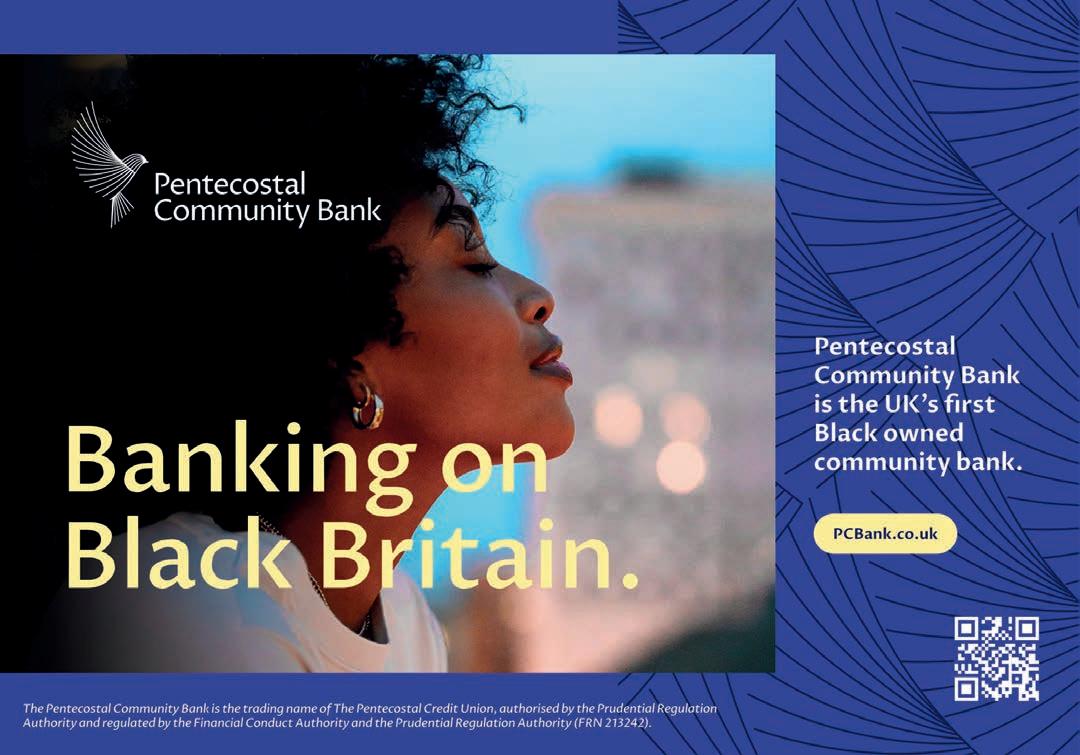










Venture capitalists are renowned for their keen eye for identifying potential, their ability to spot trends, and their strategic investments in companies poised for significant growth. While the focus is primarily on financial returns, the approach offers valuable lessons for consumers seeking to contribute to economic equity.
By adopting a venture capitalist mindset, individuals can make informed purchasing decisions that support innovative businesses, foster job creation, and promote social and environmental responsibility.
One of our core beliefs is that in and through economics comes social justice. And how do I know that I have social justice?
Because there's an equitable treatment across variety of demographics and then across a variety of measures of attainment and metrics of attainment.




So, achieving an equitable society is the goal and getting there as soon as possible is the pace we need to demand.
Here are some of the behaviours we must adopt going forward to achieve that...
With the spending power of the Black British community estimated at £300 billion annually, according to the Institute of Practitioners in Advertising (IPA), and the median turnover of Black businesses being only £25,000, an obvious solution is to redirect some of that spending power to our Black businesses through conscious consumption.
There is tremendous scope for increasing the 2% of that £300 billion currently spent with Black business. If we were to 10X it over the next 5 years, that would be £60 billion invested in the Black economy. That would no doubt help the Black pound to circulate in our economy longer than the 6 hours it’s currently estimated to and give Black businesses the opportunity
to grow and reinvest in our communities.
Venture capitalists invest in earlystage companies with the goal of generating substantial returns. Their decision-making process involves a rigorous evaluation of various factors, including the company's business model, market potential, management team, and competitive landscape.
This approach aligns with the principles of conscious consumption, which encourages consumers to consider the ethical and social implications of their purchases.
One of the key strategies of venture capitalists is to invest in companies that are disrupting traditional industries or introducing groundbreaking products and services. By supporting these innovative businesses, consumers can contribute to economic growth and job creation. When individuals choose to purchase products or services from startups and small businesses, they are helping to level the playing field and provide opportunities for entrepreneurs.

Venture capitalists often seek out companies that are committed to ethical and sustainable practices. This includes businesses that prioritize fair labour standards, environmental protection, and social responsibility. By selecting products and services from companies that align with these values, consumers can make a positive impact on society and the planet.
Venture capitalists are not solely focused on short-term gains. They consider the long-term potential of their investments and the sustainability of the businesses they support. Similarly, consumers can make more informed purchasing decisions by evaluating the longterm implications of their choices. This includes factors such as product durability, recyclability, and the
company's commitment to ethical sourcing and manufacturing.
Shopping with Black businesses is another way to contribute to economic equity. By supporting businesses in your community, you are helping to create jobs, strengthen the community economy, and foster a sense of pride and place.
Circulating wealth in Black communities is the backbone of social justice which in turn creates not just sustainable businesses but also strong institutions and infrastrcture that we can rely upon.
The net result is that your pounds have a greater impact on the people and businesses in your community.






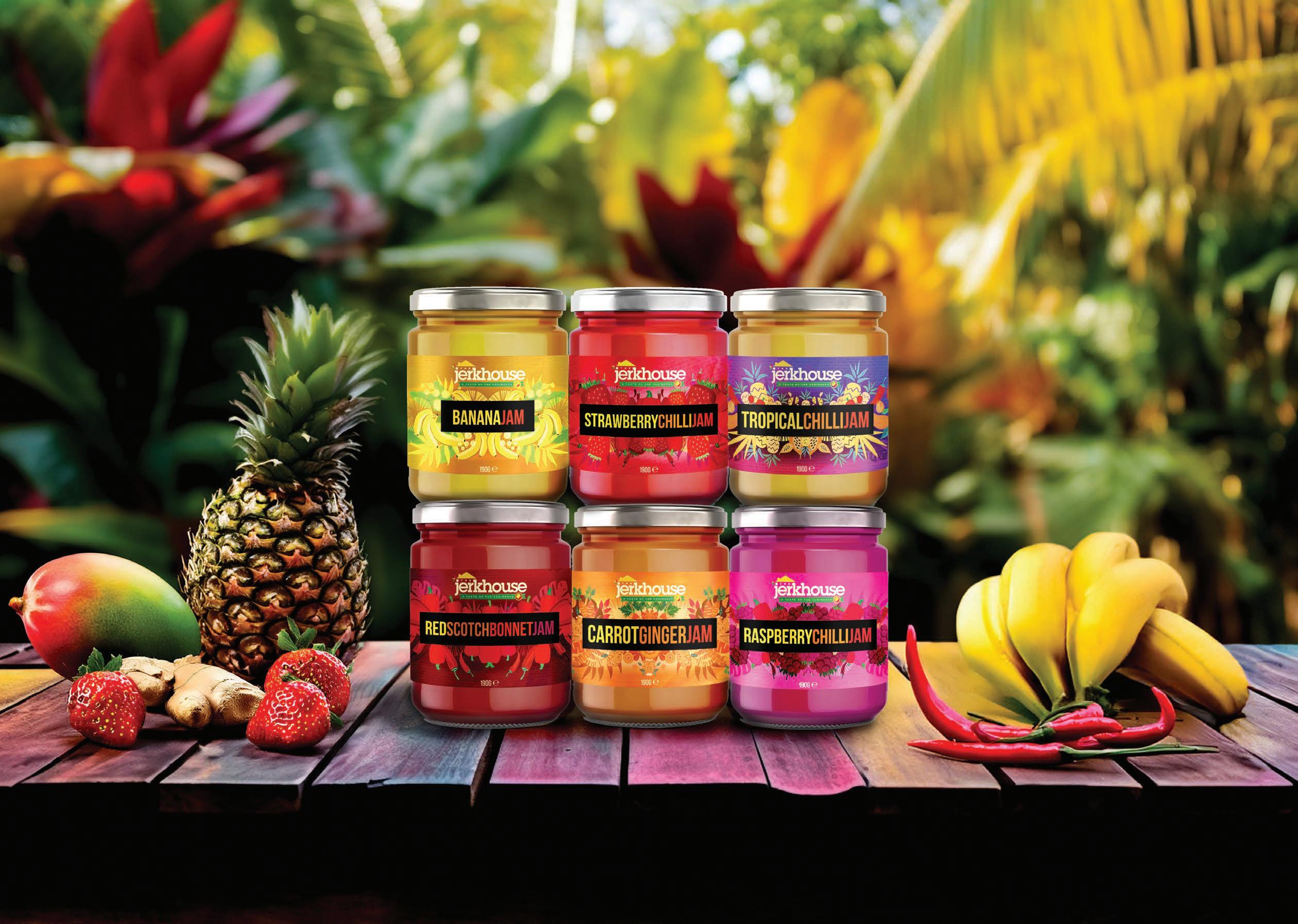
Jerkhouse Jams





















